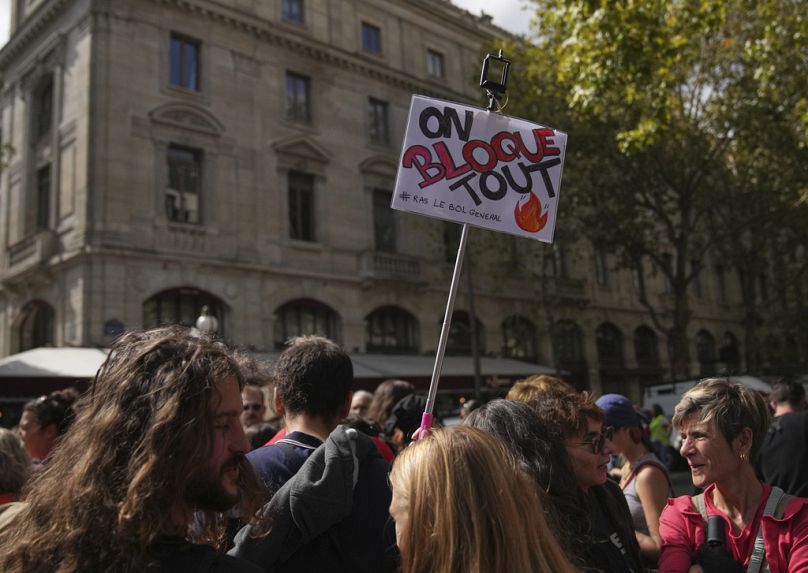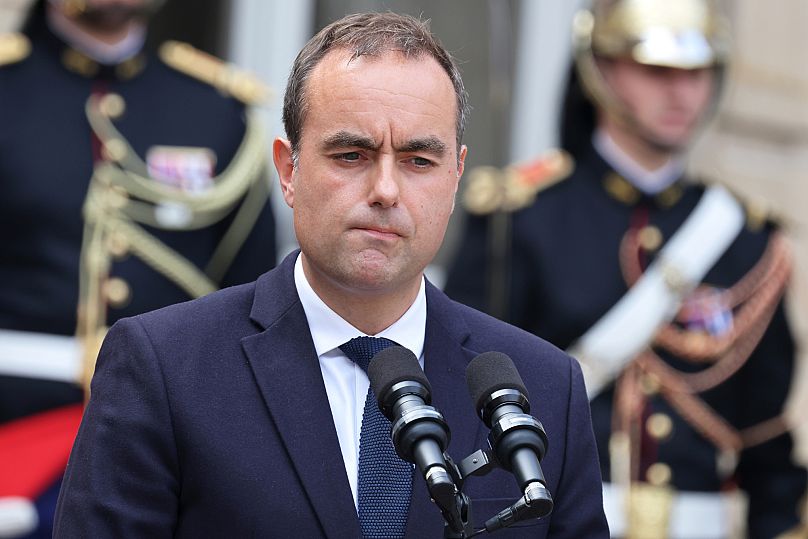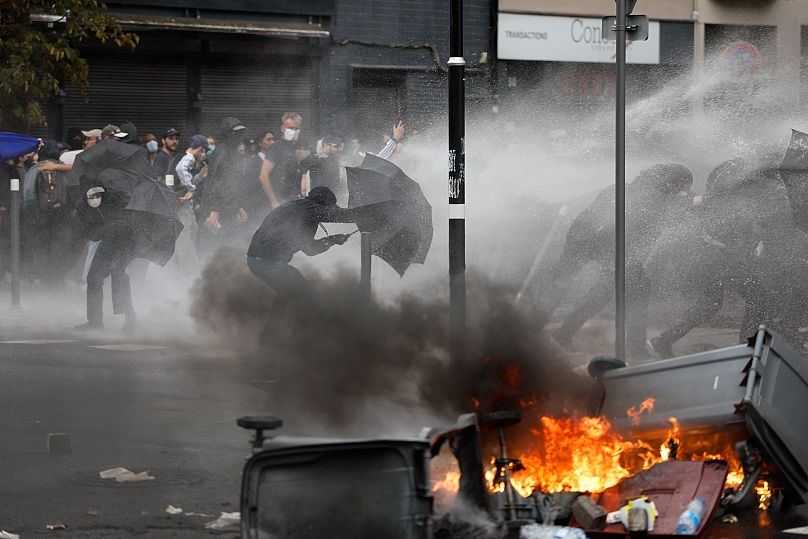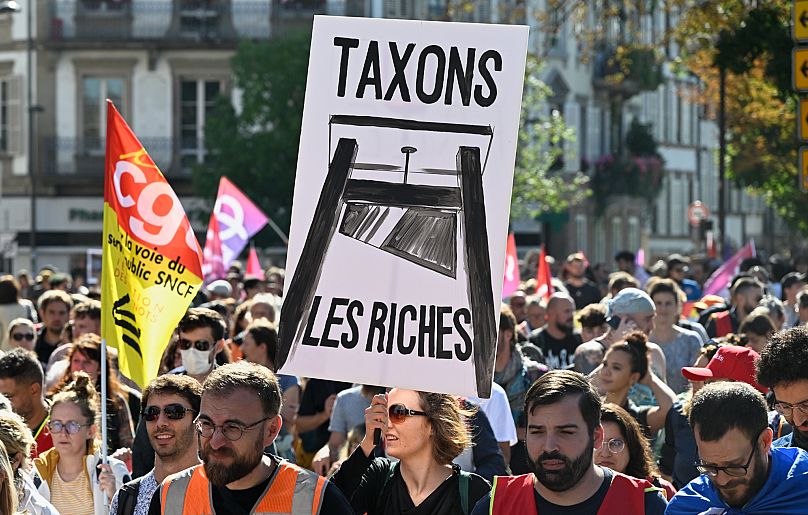All major unions have called for strikes and demonstrations against the government's budget measures. Major disruptions to transportation, schools, hospitals and public services are expected across the country.
France is gearing up for more nationwide strikes and mass protests this Thursday, expected to be one of the largest in recent years.
All of the country's major unions have joined forces in calling for action, something not seen since mass demonstrations against pension reform in 2023.
More than 250 rallies are already planned across the country, and authorities believe the turnout could exceed 800,000 people.
The strike is directed against next year's budget measures proposed this summer by former Prime Minister François Bayrou, whose government was brought down by a confidence vote on 8 September.
Although newly appointed Prime Minister Sébastien Lecornu quickly scrapped one of the most unpopular proposals - eliminating two public holidays- he has not ruled out the rest.
These include an overhaul of unemployment benefits, delinking pensions from inflation, and raising out-of-pocket medical costs.
At the heart of the showdown are France's fragile public finances. Last year's deficit reached 5.8% of GDP, nearly double the EU ceiling of 3%, while national debt now stands at more than €3.3 trillion, roughly 114% of economic output.
Bayrou has argued that drastic cuts are unavoidable, putting forward a plan to slash €44 billion in spending by 2026.
Unions say such policies amount to "unprecedented brutality" and unfairly target "workers, the unemployed, pensioners and the sick."
Sophie Binet, head of the CGT union, called the government's U-turn on public holidays "a first victory" and proof that "we are in a position of strength," but warned that "none of the other catastrophic measures from François Bayrou's horror museum have been taken off the table."
Even the traditionally moderate CFDT has joined the movement. Its leader, Marylise Léon, argues the current budget "is not compatible with social, fiscal and environmental justice," making participation in the strike unavoidable.
To appease the public and unions, Prime Minister Sébastien Lecornu has announced plans to end "lifetime" benefits for former prime ministers.
In 2024, the annual cost to the state of the benefits granted to former prime ministers and ministers was estimated at nearly €4.4 million, with almost half of this amount spent on police protection.
Where will demonstrations take place?
Protests are scheduled for all of France's major cities: Paris, Lyon, Marseille, Toulouse, Nice, Rennes, Lille, Montpellier, Nîmes and Perpignan.
The CGT has published an interactive map with details by region.
In Paris, the march will start at 2 pm from Place de la Bastille, heading to Nation via République.
Meanwhile, the grassroots movement "Bloquons tout" (Block Everything) is preparing disruptive actions in the capital, including attempts to shut down sections of the capital's ring road.
Major transport disruptions
Rail traffic will be heavily impacted: only one in three regional TER trains will run, along with one in two intercity services.
High-speed TGVs (including Lyria and Ouigo) will face limited disruptions. The SNCF rail operator has promised that "all passengers should be able to travel during the day" and is offering free ticket exchanges and cancellations.
In the Paris region, disruption is expected to be severe.
"90% of metro drivers and 80% of RER suburban rail drivers will be on strike," according to the FO-RATP union.
Only fully automated metro lines (1, 4 and 14) will operate normally. Bus and tram services will also be heavily reduced.
Air travel is expected to run close to normal after air traffic controllers suspended their call to strike.
About one-third of primary school teachers will walk off the job, according to the FSU-SNUipp union, which has warned of a deep lack of resources in education.
Hospitals in the Paris region have also filed strike notices across the sector.
Pharmacists plan to close nearly all pharmacies (98%) in protest at shrinking profit margins on generic drugs.
Electricity and gas workers will hold rallies outside energy facilities.
Security measures not seen since the Yellow Vests
The scale of the 18 September mobilisation is expected to surpass that of 10 September, when some 200,000 people protested under the slogan "Block Everything," according to the Interior Ministry.
With fears of unrest, outgoing Interior Minister Bruno Retailleau has instructed police to "prevent any damage" and block attempts to shut down "essential infrastructure."
Authorities will deploy an enormous security force: 80,000 police officers and gendarmes nationwide, backed by 24 armoured vehicles, 10 water cannons and surveillance drones - a level of policing "not seen since the Yellow Vests protests" of 2018–2019.
The main flashpoints are expected in major cities - particularly Paris, where authorities are preparing for 30,000 to 60,000 protesters - as well as in Rennes, Nantes, Toulouse, Dijon, Lyon, Montpellier and Bordeaux.















